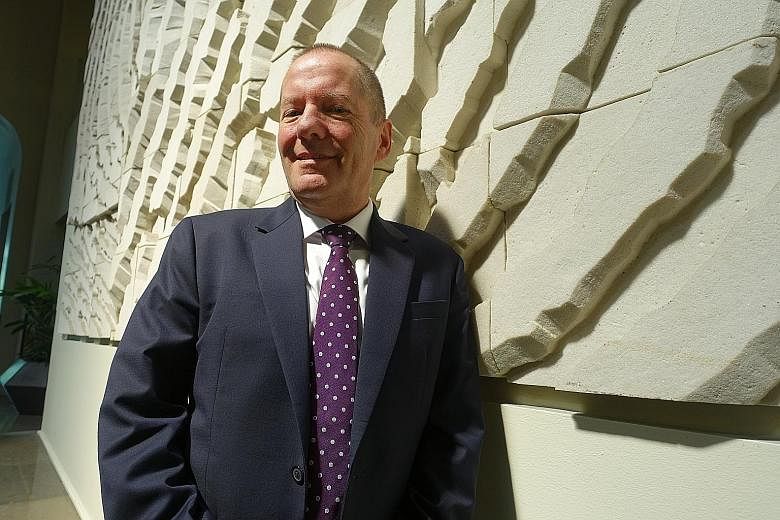Having fled from a troubled Myanmar as a child, Mr Dingo Keidar spends most of his time in Mae La refugee camp in north-western Thailand.
Money is hard to come by, and the furthest he can venture is the nearby district of Mae Sot. But he is now attending university every day, through a second-hand mobile phone and a 100 baht (S$4.01) a month data connection.
Mr Keidar, 20, is enrolled at the University of the People, a California-based online university set up in 2009 to widen access to higher education. It does not charge tuition fees, only a US$100 (S$143) administration fee for each examination at the end of a module. This means a bachelor's degree would cost US$4,000.
Teaching and learning are done on a platform designed for the spottiest of Internet connections, to give students from all backgrounds an equal chance to succeed.
"We try not to be cutting-edge," said its founder and president Shai Reshef, an Israel-born entrepreneur who yesterday announced 50 scholarships for Myanmar students at a refugee clinic in Thailand. "We want to use the technology that everyone can use."
This means there are no video clips, audio files or other bandwidth-hogging elements in the material it gives students. All teaching and class discussion are done using text. Exams take place all over the world, at volunteers' homes, offices or other available spaces.
The non-profit institution, funded by The Bill and Melinda Gates Foundation and Google among other groups, now has 6,000 students enrolled in its business administration, computer science and health science bachelor degree courses, as well as master's of business administration. Curriculum is overseen by volunteer academics from respected universities like New York and Columbia.
Mr Reshef wants to double enrolment every year. Once it reaches 20,000, he disclosed, the model will be financially sustainable and volunteers can be paid for their services.
"Everybody deserves the right to higher education," he told The Straits Times recently in Bangkok. "And the technology enables us to give that… We are showing that education can be great-quality with a minimum cost."
Many governments spend millions of dollars to build universities that serve very few students, he observed. "We want to show governments that (our) solution is viable… we want to grow to show them and to show others that they can do it as well. What we do, every university can do."
He dismissed the suggestion that his university compromises on academic quality, saying that half of the students drop out after failing compulsory foundation courses for their respective degrees.
Its students are a diverse crop: Thirty-five per cent are from the United States, 24 per cent from Africa, and 14 per cent from East Asia. Of its active students based in South-east Asia, 20 are in Singapore and 38 in Thailand.
Some of these students are mothers juggling child-rearing and schoolwork, while others come from cultures where women are expected to be homebound. And then, there are refugees like Mr Keidar.
The ethnic Karen-Shan youth told The Straits Times he had despaired about his chances of getting a degree after his post-secondary education, the highest level available inside the Thai-Myanmar border refugee camps, which host some 100,000 people. But he managed to secure a University of the People scholarship earlier this year to read business administration.
"I had almost lost faith in my future," he said. "Now I'm really excited to see what's out there."
So far, the university has enrolled 1,000 refugees as students.
Despite turning its back on fancy technology, the institution is not short on ideas. One of its deans recently created an algorithm that identifies students weak in particular subjects and then pulls material off the Internet for them to read.
"We tried it in one class and the average improvement was half a grade," said Mr Reshef.
Next, the same dean is going to try to create an algorithm to match the best students in specific areas with those who are weak in that subject.
"The algorithm can see when you log in, what you read, how your homework was, and what grades you got," said Mr Reshef. "We know everything about the student."

